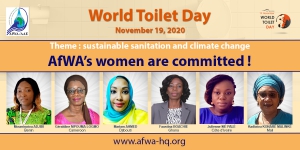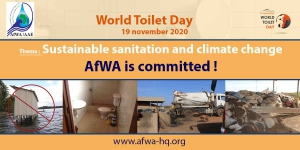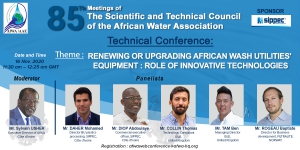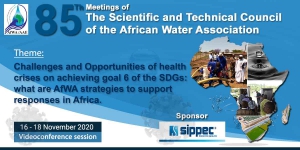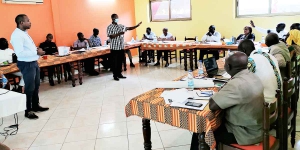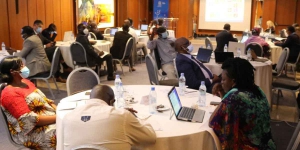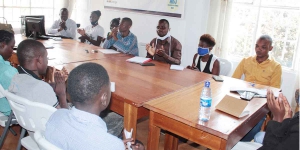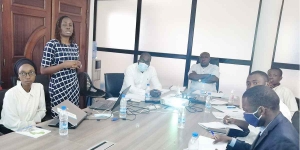Nzickonan Stéphanie
We all have a joint responsibility to build sustainable, safe, accessible, affordable and culturally acceptable toiletsWe all have a joint responsibility to build sustainable, safe, accessible, affordable and culturally acceptable toilets.
People blush when women start to talk about shit and poop in public. I’ve been asked a few times; why do you have to talk about toilets in get-togethers or in the public. We talk about it because of the 4.2 billion people living without access to safely managed sanitation. Most African households living in low income communities, slums and rural areas still do not have toilets in their homes and are required to share toilets with other households They depend on public toilets where you can distinctly catch the smell of faeces, or defecate openly. The right to clean and safe sanitation is, at the heart, the right of every individual to better health and human dignity. It is also fundamental to a healthier, safer society as it allow people to dispose of their waste appropriately. While substantial progress has been made in developing innovative toilet systems in African cities and towns, a lot more still needs to be done as 4 in 10 people still do not have access to a toilet. Research shows that a quarter of school girls drop out of school permanently because of simple lack of toilet. It is crucial to remove all forms of disparities preventing people living in disadvantaged areas and women and girls and guarantee access to safely managed sanitation. This year’s theme reminds us of the importance of building sustainable toilets in our homes, schools, health centres, markets and everywhere whilst drawing attention to the dangers of ill-maintained sanitation systems. We should not forget that climate change is accelerating which also poses an urgent threat on toilets to septic tanks to treatment plants. It is worthy to note that one household’s lack of toilet can have a negative impact on the health not just of the people in that dwelling, but also on others living nearby. This means that we all have a joint responsibility to build sustainable, safe, accessible, affordable and culturally acceptable toilets. Not only for our own sake, but also for the sake of those around us. Everyone should have access to safe and clean toilets, alongside clean water and handwashing facilities to help stop the spread of deadly infectious diseases such as diarrhea, cholera, typhoid and COVID-19. As we celebrate World Toilet Day 2020, I wish to encourage all actors to continue to educate the public on sanitation and climate change issues, mobilise political will and resources to build more toilets, and to not forget to celebrate our achievements. Happy Toilet Day. Faustina BOACHIE, President of WIWASH-Ghana (women in water, sanitation and Hygiene, Ghana)
"We all have a joint responsibility to build sustainable, safe, accessible, affordable and culturally acceptable toilets"
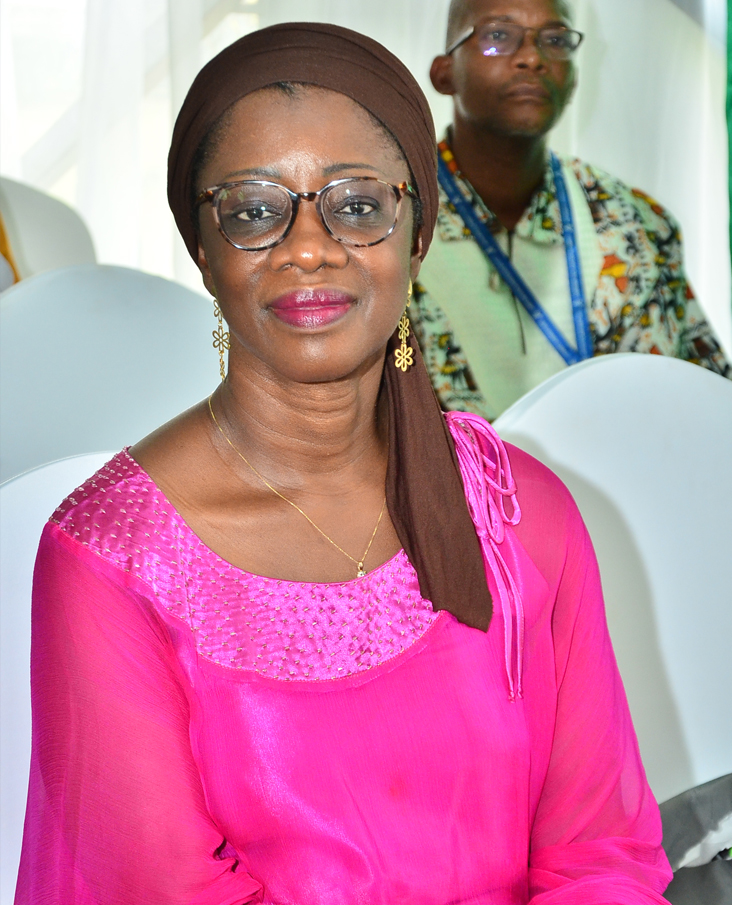
"Women must stand up for the cause of sanitation.
Their lives and those of their children are at stake.
Investing in sustainable sanitation brings development,
offers many opportunities and contributes to saving the planet. »
Geraldine Mpouma Logmo, President of the Association
of Professional Women in Water and Environment of Cameroon (AFPEEC)
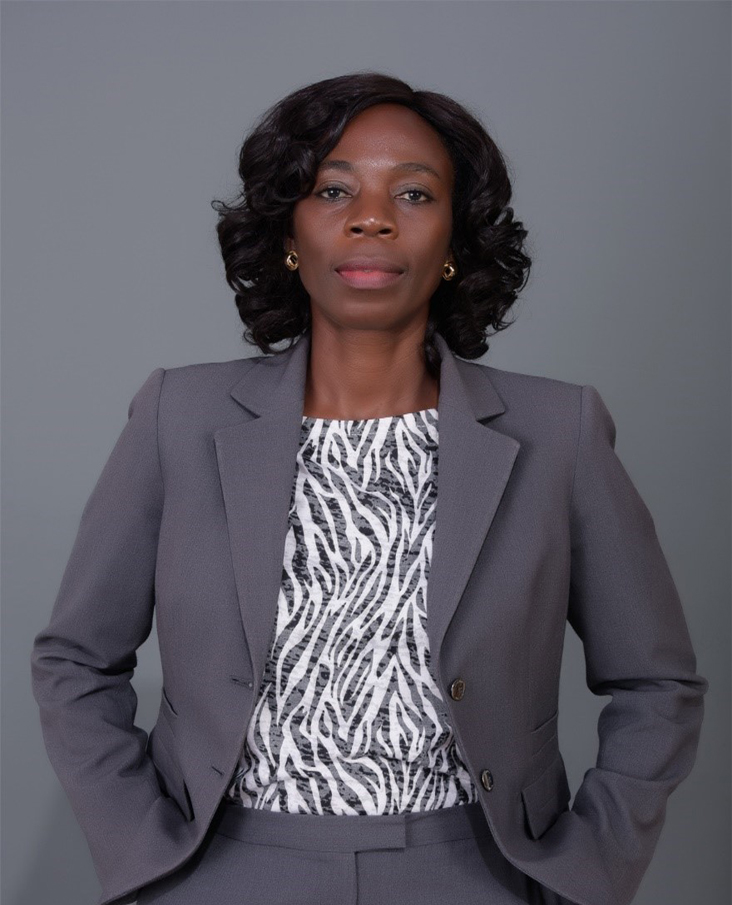
People blush when women start to talk about shit and poop in public. I’ve been asked a few times; why do you have to talk about toilets in get-togethers or in the public. We talk about it because of the 4.2 billion people living without access to safely managed sanitation. Most African households living in low income communities, slums and rural areas still do not have toilets in their homes and are required to share toilets with other households. They depend on public toilets where you can distinctly catch the smell of faeces, or defecate openly.
The right to clean and safe sanitation is, at the heart, the right of every individual to better health and human dignity. It is also fundamental to a healthier, safer society as it allow people to dispose of their waste appropriately. While substantial progress has been made in developing innovative toilet systems in African cities and towns, a lot more still needs to be done as 4 in 10 people still do not have access to a toilet... Read more
Faustina BOACHIE, President of WIWASH-Ghana (women in water, sanitation and Hygiene, Ghana)
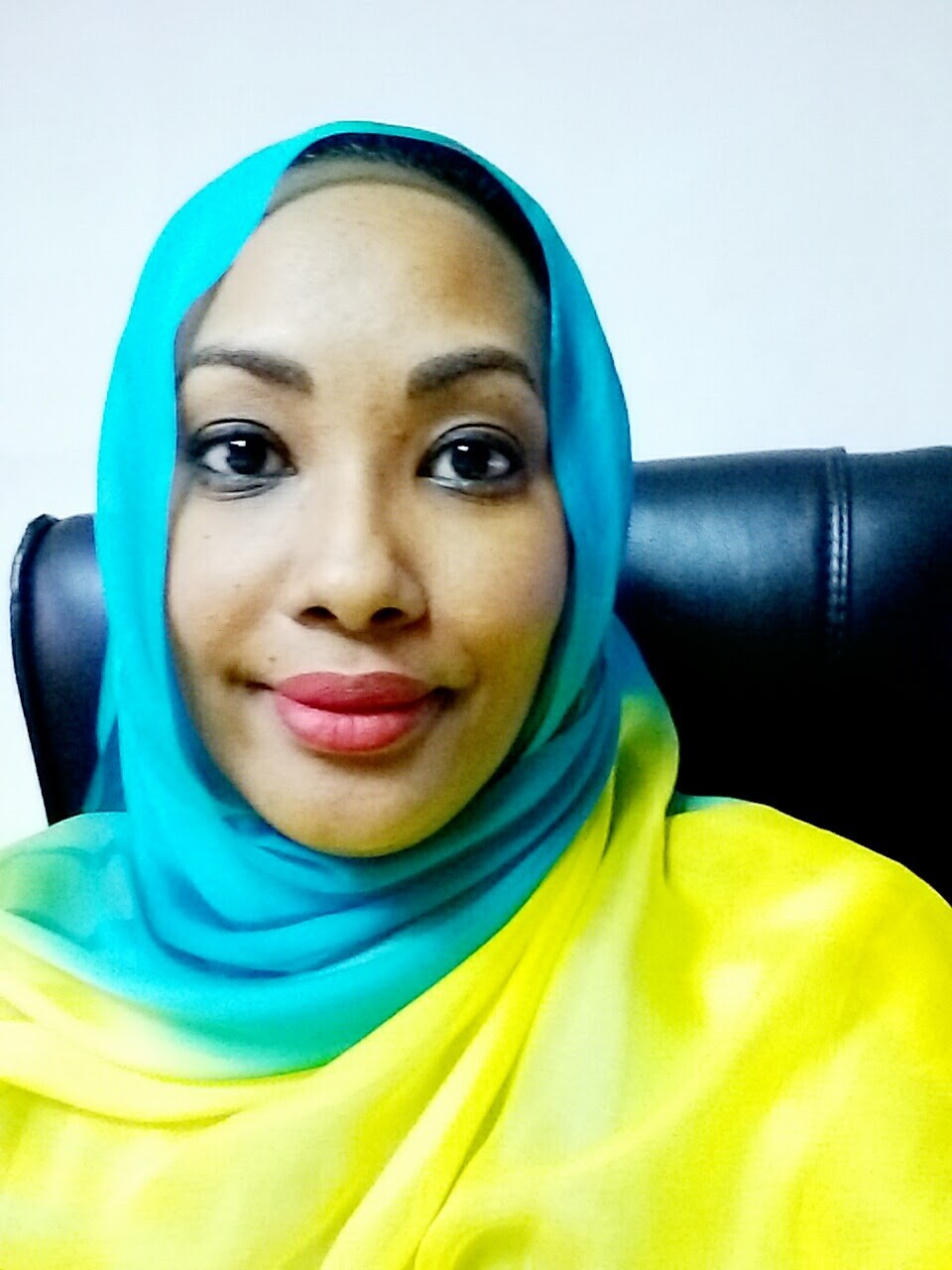 On the occasion of World Toilet Day, whose theme this year is "sustainable sanitation and climate change", the population should be sensitized to connect to a sustainable and decent sanitation system and equip themselves with adequate hand washing devices; this will consequently annihilate illnesses linked to lack of hygiene and thus promote, in the long term, the life expectancy of these households. This awareness of the importance of handwashing for household safety will consequently annihilate illnesses related to lack of hygiene and will thus, in the long term, increase the life expectancy of these households. In this regard, since youth is the best vector for raising awareness, we make schools a priority in our awareness activities, especially in this time of pandemic COVID19 crisis, it is important to recall the essential gestures.
On the occasion of World Toilet Day, whose theme this year is "sustainable sanitation and climate change", the population should be sensitized to connect to a sustainable and decent sanitation system and equip themselves with adequate hand washing devices; this will consequently annihilate illnesses linked to lack of hygiene and thus promote, in the long term, the life expectancy of these households. This awareness of the importance of handwashing for household safety will consequently annihilate illnesses related to lack of hygiene and will thus, in the long term, increase the life expectancy of these households. In this regard, since youth is the best vector for raising awareness, we make schools a priority in our awareness activities, especially in this time of pandemic COVID19 crisis, it is important to recall the essential gestures.
.. Read more
Mariam AHMED, Djiboutian Network of Professional Women in Water and Sanitation
 Nothing is more astounding than to see that in Africa, people without access to toilets proudly walk around communities with a smartphone in their hand...
Nothing is more astounding than to see that in Africa, people without access to toilets proudly walk around communities with a smartphone in their hand...
Why is the African continent struggling to meet the sanitation challenge? Quite simply because most African countries prefer to invest billions in the construction of roads and telecommunication networks rather than in the construction of sanitation networks and/or toilets that meet standards! Don't African countries understand that floods, droughts and the scarcity of water resources will continue to have catastrophic but above all alarming social, health and environmental repercussions for the planet?
As committed leaders in the water and sanitation sector, we as women are reiterating our willingness to support AfWA in its quest for African solutions for sustainable access to sanitation for the most vulnerable, namely women and children... Read more
Konaré Kadiatou Malinké, President of the Malian Network of Women Water and Sanitation Professionals
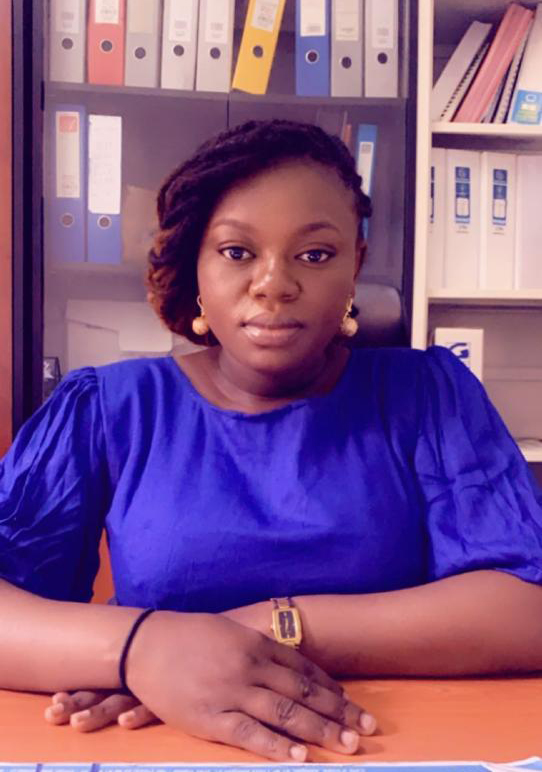 With more than 80% of the population (Ivorian) using non sewer sanitation system, it is up to each individual or collectively, through households, emptying companies or through the action of organizations and institutions to promote :
With more than 80% of the population (Ivorian) using non sewer sanitation system, it is up to each individual or collectively, through households, emptying companies or through the action of organizations and institutions to promote :
- the construction and maintenance of suitable sanitation facilities, particularly toilets and septic tanks; - a secure collection and transport system; - the provision and proper functioning of dedicated treatment units.
Together, let's make our toilets a means of safeguarding life. Read more
Sié Palé Julienne, president of the National Association Toilets for All, Côte d'Ivoire
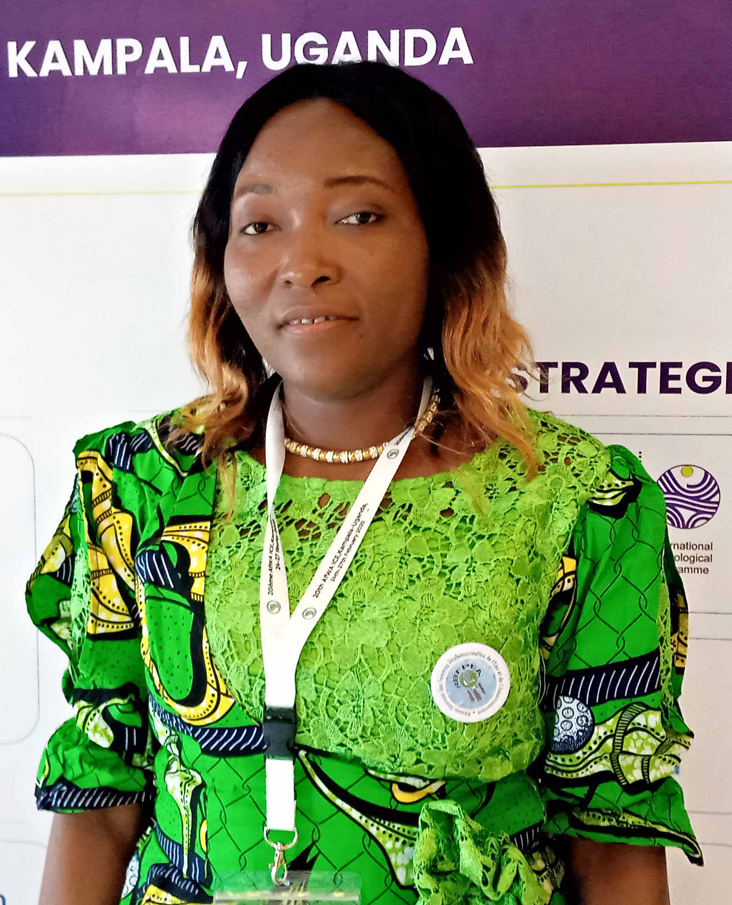 " Facing the threat of climate change, securing water, hygiene and sanitation infrastructure is more than ever the responsibility of all,
" Facing the threat of climate change, securing water, hygiene and sanitation infrastructure is more than ever the responsibility of all,
for the health and well-being of our populations and that of future generations. "
Mouminatou Adjibi, president of the Beninese network of women water and sanitation professionals
AfWA is committed to universal access to sustainable sanitation and climate protection
AfWA is committed to universal access to sustainable sanitation and climate protection.
Please spread the word!
Come and discover the innovative technologies of WASH sector on November 16, 2020!
The African Water Association organizes during the sessions of its Scientific and Technical Council (STC), Open Days (OD) or AfWA’s DAYS. Open Days consist of the organization of a mini exhibition, varying between 10 and 20 stands, and conferences during the large plenary session at the opening of the STC' sessions.
The STC bureau, highly mobilized and involved in the organization of all stages of the ODs, has decided to make it a showcase for the constant improvement of AfWA's image throughout Africa and the world.
The present edition is materialized by 02 technical conferences and a workshop on innovation technologies. This last one is held in digital form due to the current health crisis.
You're cordially invited !
85th AfWA’ STC’s meetings: registration is open now
The African Water Association is pleased to invite all the actors of Water and sanitation sector to the 85th meetings of its Scientific and Technical Council to be held from 16 to 18 November 2020 by videoconference under the theme: Challenges and Opportunities of health crises on achieving goal 6 of the SDGs : what are AfWA strategies to support responses in Africa.
AfWA members, decision-makers, politicians, municipalities, experts, NGOs, technology providers, you are all expected.
Save the dates to take part in this meeting of exchanges concerning challenges in WASH that Africa is facing.
Registration link: 85th AfWA STC
Water and Sanitation Governance: USAID MuniWASH wants to empower municipalities
Equipping municipalities with a strategic tool to assess their institutional capacity building needs is one of the activities of the West Africa Municipal Water, Sanitation, and Hygiene (MuniWASH) project - a five-year project funded by the United States Agency for International Development. Among the anticipated outcomes of the project is the improvement of municipal governance and management capacities of municipal actors in the water and sanitation sector. By their strengthening institutional capacities, municipalities will have the skills and autonomy to advocate for their WASH priorities to high-level decision-makers in charge of planning, budgeting, management, regulation, and monitoring of water and sanitation services. This new dynamic will foster successful collaboration between municipalities and the central government.
At the conclusion of a transparent, participatory selection process, eight municipalities in Benin and eight municipalities in Côte d’Ivoire were selected as beneficiary partners of MuniWASH. The project is aiding municipal administrations, national departments and agencies, and service providers to improve water and sanitation services while including poor and vulnerable populations. To help achieve these goals, MuniWASH will equip the 16 target municipalities with a tool called the Institutional Strengthening Index.
This Institutional Strengthening Index tool proposes a method for assessing the capacity of organizations based on a shared analysis of essential and non-exhaustive functions such as: human resources/staff skills, policies and procedures, facilities/equipment and technologies, citizen engagement, and systems and processes. This approach facilitates a diagnosis of institutional weaknesses through a self-assessment process that examines the functions of the communal contracting authority relating to the water, sanitation and hygiene sector. The tool will enable municipalities to have a reliable benchmark of their present capacity in order to identify deficiencies, and consequently, define a capacity building plan based on the gaps they observed.
Prior to deployment, the MuniWASH team trained technical ministries, as well as representatives of communal organizations of Benin and Côte d'Ivoire, namely the National Association of Communes of Benin and the Union of Cities and Communes of Côte d'Ivoire on this tool. These commune umbrella organizations will play an important role in mobilizing communes to leverage the information generated by the tool in the 16 municipalities/communes targeted by the project. “The Institutional Strengthening Index is neither an audit nor an evaluation of the quality of the services provided by the mayor's office, but rather evaluates the internal capacity to deliver them," explained MuniWASH consultant Sarah Leddy, who led the online training. Preliminary training will be followed by a pilot phase where the tool will be applied in one municipality before being extended to all 16 target municipalities in Benin and Côte d'Ivoire. Data will be collected for input to the tool through interviews with mayors and their deputies, members of municipal councils, mayor's office staff, and civil society organizations advocating for water and sanitation issues in each of the two countries.
Passing of the Founding Father of AfWA
The African Water Association (AfWA) Executive Director regrets to inform you of the recall to God of Mr. Marcel Zadi Kessy, the founding father of the African Water Association. Mr. Zadi’s passing occurred during the night of Wednesday 13 to Thursday 14 October 2020, in Abidjan, following a long illness.
Mr. Zadi Kessy Marcel was President of the Economic and Social Council of Côte d'Ivoire from 2011 to 2016. In Côte d'Ivoire, his name rhymes with the « Groupe de la Compagnie ivoirienne d’électricité (CIE) », (Ivorian Electricity Company Group) and the « Société de Distribution d’eau de Côte d’Ivoire (SODECI) » (the Water Distribution Company of Côte d'Ivoire), which he joined in 1970. After successively holding the positions of Head of Department, Department Director, Deputy Director General, and General Manager, Marcel Zadi Kessy became Chairman and Chief Executive Officer (CEO) of SODECI in 1985. In 1990, at the creation of the Ivoirian Electricity Company (CIE), during the privatization of the Ivorian electricity sector, Marcel Zadi Kessy also became the company’s Chairman and Chief Executive Officer (CEO). For more than ten years, he thus cumulated the functions of CEO of both companies, then in 2002, he became Chairman of the Board of Directors of both companies.
Mr. Marcel Zadi Kessy is Founding Chairman of the African Union of Water Distributors (UADE), which later became the African Water Association (AfWA).
The Executive Director of AfWA presents his sincere condolences to Mr. Zadi’s biological and professional families.
A online condolence' book is open. To write a word, please click here.
AfWA Participates in the National Workshop for Validating the Observatory for Water Quality's Concept Note in Côte d'Ivoire
From 07th to 08th October 2020 in Abidjan, Côte d'Ivoire, the United Nations Educational, Scientific and Cultural Organization (UNESCO) organized a validation workshop which gathered together municipal representatives of Plateau, ministries in charge of water, sanitation, environment and health, regulators, water and sanitation operators, laboratories for water quality analysis, national universities, research centers and institutes, international organizations, donors and media.
This workshop aimed to validate the concept note by the National Observatory for Water Quality in Côte d'Ivoire.
The African Water Association (AfWA) was represented by Mr. Gilles Djagoun, Senior Coordinator of the Water Program in charge of AfWA capacity building program (AfriCap). Being an important step in getting all water and sanitation stakeholders involved, this workshop was part of a process facilitated by UNESCO for setting up a National Observatory for Water Quality in Côte d'Ivoire. Following a number of presentations, group work and discussions, participants were able to help improve the draft version of the concept note for setting up an Observatory for Water Quality in Côte d'Ivoire, develop a draft action plan and implementation strategy for establishing this Observatory (activities, timeline, key players and role), propose key partners, potential donors and fundraising guidelines, and identify the next steps for setting up this Observatory.
For further information, kindly liaise with Mr. YEYE, Ange Boni Joachim, Consultant - UNESCO Sciences Programme, Email: This email address is being protected from spambots. You need JavaScript enabled to view it.
Young Water Professionals of Democratic Republic of the Congo organize a Capacity Building Workshop on Sanitation
Under the theme "Sanitation's socio-economic opportunities in the era of COVID-19", the DRC Network of Young Water and Sanitation Professionals (RJPEA-RDC) organized a capacity building workshop on Saturday 05th September 2020 at Maison des jeunes (Youth House) of Carter/Goma.
The opening session began with a minute of silence to mark the passing of Professor Ives Magloire KENGNE Noumsi, former Senior Sanitation Program Coordinator in charge of SAO-CWIS who died in June 2020.
Twenty (20) representatives of youth organizations attended this workshop which was facilitated by Mr. Serge Koko Bashonga and Ms. Nicole Musimbi.
Through his speech, Mr. Serge Koko Bashonga discussed several items, including the types of sanitation and the importance of a clean environment, which leads to an improved health state of the population, protection of the environment, increased productivity and job creation.
Mrs. Nicole Musimbi in turn presented the new generation of toilets, thus informing the youths about the efforts that are being made worldwide to advance the sanitation sector; the objectives was to inspire young participants to innovate in all areas, with research studies in sanitation growing exponentially. Indeed, Innovation is the world's leading value in all fields: telephones, computers, cars, medicine, etc. Similarly, the WASH sector has to make use of new technologies for sanitation management.
Beyond all the benefits of sanitation outlined during this workshop (preservation of lives, savings in health care, environment protection, progress in education, reduction of gender inequalities ...), the young participants also came to specifically understand how to significantly initiate economic activities and create jobs from sanitation challenges; especially in this particular period where water, hygiene and sanitation services are keys in the fight against the COVID-19 pandemic.
Finally, a Young Professional Mr. Salem shared his first experience with entrepreneurship through the production of a liquid soap 100% made in Congo, an initiative he started just after the confirmation of the first COVID-19 infections in the DRC.
Defenses of Master's Thesis on the Effect of Non-Revenue Water and Impact of Policy and Management Systems on the Performance of Water Utilities: the Jury Validates the Research Studies of Djalia and Margaret with First Class Honors!
"Effect of Non-Revenue Water on the Operation of African Water Utilities. Case studies of Burkina Faso and Cote d’Ivoire" and "Impact of policy and water utility management systems on the performance of water quality service delivery in Africa. Case study: Cote d'Ivoire and Burkina Faso". These are the topics of the master thesis defended by Djalia UMUTANGAMPUNDU and Margaret Sima KIRONDE respectively, two master students at the Pan-African University Institute of Water and Energy Sciences (PAUWES) of Algeria in the Water Policy track. These presentations took place on Sunday 20th and Monday 21st September 2020 respectively through videoconferencing from Abidjan, Cote d’Ivoire.
The choice of these topics, as Dr. Simeon Kenfack, AfWA Director of Programs put it, falls under the framework of AfWA's mandate which aims to support African water and sanitation utilities and stakeholders as well in ensuring that relevant policies, regulatory frameworks and innovative technical solutions are in place to foster performance improvement in water and sanitation service delivery.
Thus, the research study by Djalia highlighted the impact of Non-Revenue Water on the various key performance indicators of water utilities, while revealing the need for setting up policies and a consistent framework for the WASH sector management. Indeed, the wide array of involved stakeholders can hinder decision-making, overload operating costs and ultimately delay the access for all to water and sanitation services by 2030.
Margaret's research results unveil that success is possible in each managerial scenario (public-public or public-private), provided that relevant management policies are coordinated properly and implemented at national scale. The research study therefore invites decision-makers to put coherent systems in place for monitoring and evaluating water management policies and systems, which on their own are a sure guarantee to achieve Target 6 of the Sustainable Development Goals pertaining to water and sanitation.
At the end of their defenses, both students received congratulations from the international Jury attending the sessions from Algeria, Ethiopia and AfWA headquarters in Cote d'Ivoire, the location of the thesis supervision team. It is worth nothing that they carried out their research in a particularly tough context due to the Covid19 health crisis. The Jury unanimously awarded them the Master of Sciences in Water Policy.
As a reminder, Djalia UMUTANGAMPUNDU from Rwanda and Margaret Sima KIRONDE from Tanzania started their internship at AfWA in March 2020, and they have been working under the supervision of Dr. Simeon Kenfack, AfWA Director of Programs assisted by Messrs. Gilles DJAGOUN, AfWA Senior Water Program Coordinator in charge of AfriCap and Charles BOTI, PhD student.

 English
English  Français
Français 
